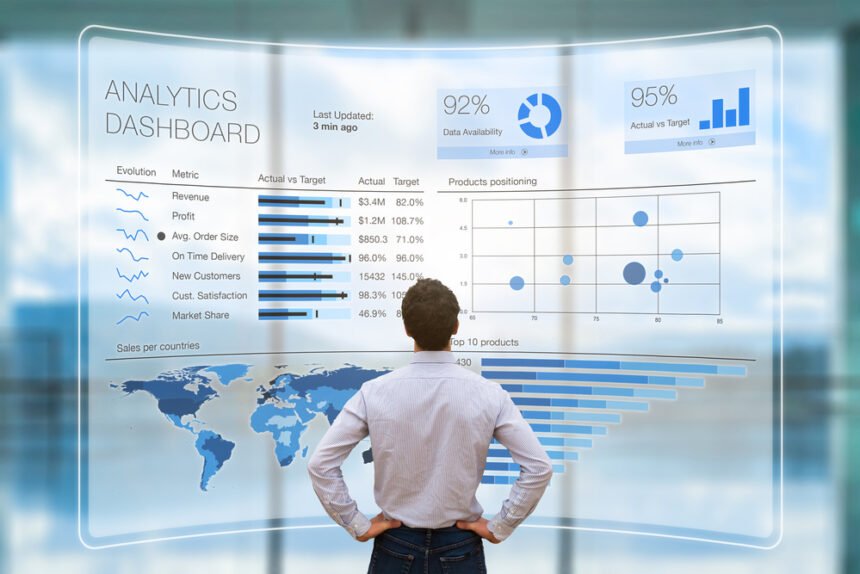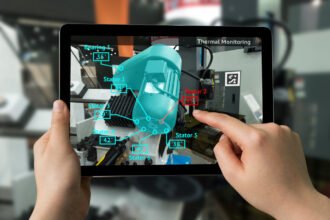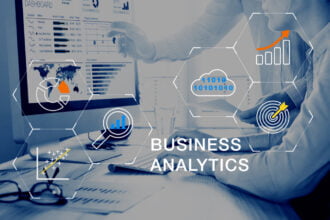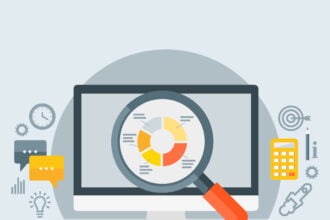Big data is undoubtedly changing the future of modern business. One study from KPMG found that 70% of businesses feel their big data initiatives are going to be invaluable to the future of their business model. How they choose to leverage their data is going to be vital to their future success.
Smart Businesses Search for New Ways to Leverage Big Data
Information is power. That unavoidable business truth has been a core part of some of history’s most successful corporate enterprises in every industry. The concept is even more relevant in the digital age as large entities rely on vast amounts of detailed data to conduct day-to-day operations. It’s not enough to understand the inner workings of a company. No matter what you sell, it’s imperative to gather as much information as possible about customers, markets, competitors, regulatory agencies, and more.
How do modern businesses leverage the unique power of data to stay one step ahead of their competition? In addition to using loyalty programs to gather relevant data about regular clients, companies use fleet management systems, demographic analysis, social media insights, and in-house product comparisons to boost profits and eliminate wasteful activities. Big data is helping businesses improve customer retention, improve the ROI of marketing, resolve compliance concerns and much more. Here’s a short review of the top ways in which owners use big data to increase overall efficiency and profitability.
Loyalty Programs
If you’ve ever received a special offer from a company you regularly buy from, you already know what a loyalty program is about. Merchants set them up to keep happy customers in the loop and let them know that their patronage is appreciated. It’s not unusual for a business to spend huge amounts of money on these arrangements, which are a win-win for all parties. Customers get free stuff, and sellers gather additional info about buying habits, preferences, and more.
Fleet Management Systems
Fleet management programs deliver vast amounts of information to supervisors. All of the data is relevant in one way or another, and all of it is available in real-time, thanks to modern software advances. Owners can take advantage of a common fleet software tool and track every vehicle via GPS. Likewise, it’s simple to pull data from the system and find out when each truck’s next scheduled maintenance date is, how many miles the current driver has logged on a particular trip, what road conditions are, and whether deliveries are on-time or behind schedule. Fleet programs are the new nerve center of transport businesses, and for a good reason. For a low relative price, they offer company owners the chance to track, trace, and monitor every vehicle in real-time.
Customer Demographics
Businesses collect customer demographic data in a number of ways, but mostly through initial contacts with buyers who opt-in to mailing lists, special offers, and company newsletters. Building a demographic database is much like personal networking; it takes time but pays huge dividends. How do organizations leverage this valuable set of data? They not only use it to target special offers to likely buyers but also use client demographics to design new products that meet the known needs of large numbers of existing customers. You can even use demographic data to implement better SMS marketing strategies.
Activity on Social Media
Social media might represent a fun, exciting way for individuals who want to meet others, discuss favorite topics, and share photos or videos of recent trips. But for commercial businesses, the socials represent a massive cache of customer information. That’s why major corporations spend millions of dollars creating a social media plan that works. Setting up and monitoring their social media accounts every day of the year. Often, company representatives can short-circuit potential publicity problems via social media by directly interacting with disgruntled customers and handling their complaints quickly and in a respectful manner.










